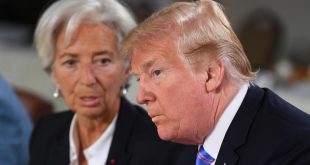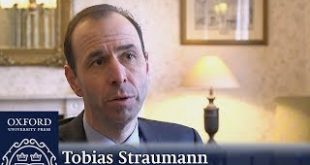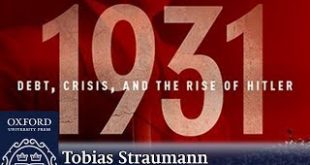Alles im Lot: Ueli Maurer verkündet als Finanzminister regelmässig Haushaltüberschüsse. (Foto: Peter Klaunzer / Keystone) Die Lage der öffentlichen Haushalte in der Schweiz ist glänzend. 2017 schlossen sie zum dritten Mal in Folge mit einem Überschuss ab. 2018 und 2019 dürfte sich das gemäss Eidgenössischer Finanzverwaltung (EFV) kaum ändern. «Angesichts dieser positiven Lage können in den nächsten Jahren vor allem Bund, Kantone und Sozialversicherungen von einer Entschuldung ausgehen»,...
Read More »Warum Trump sein Handelsziel verfehlt
Ob er auf sie hört? Donald Trump und IWF-Chefin Christine Lagarde. (Foto: Neil Hall/Keystone) Noch immer ziehen sich die Verhandlungen zwischen China und den USA hin. Trotz der stetigen Verlautbarung von US-Präsident Donald Trump, es fehle wenig zu einer Lösung, wird der Termin für sein Treffen mit dem chinesischen Staatschef Xi Jinping immer wieder aufs Neue verschoben. Schon jetzt ist klar, dass Trump sein wichtigstes Ziel nicht erreichen wird: einen Abbau des Aussenhandelsdefizits der...
Read More »Die «Masters of the Universe» sind zurück
Im März schloss die EZB aus, die Minuszinspolitik vor 2020 zu beenden: Präsident Mario Draghi tritt in Frankfurt vor die Medien. Foto: Armando Babani (Keystone) Es ist wie ein Déjà-vu: Zentralbanken haben sich wieder einmal aufgemacht, die Weltwirtschaft zu retten. Als 2008 die globale Finanzkrise ausbrach, wurden die Zentralbanken zu den Protagonisten der Wirtschaftspolitik. Sie streiften ihre traditionelle Rolle als Schiedsrichter ab, der möglichst neutrale Rahmenbedingungen...
Read More »Could the 1931 financial crisis have been prevented? | Tobias Straumann
Tobias Straumann explores if Germany’s financial collapse in 1931 could have been prevented. https://global.oup.com/academic/product/1931-9780198816188 Tobias Straumann is an Associate Professor of Economic History at the University of Zurich. He is a member of the European Historical Economics Society and the academic council of the European Association for Banking and Financial History. Straumann has widely published in the area of twentieth-century European financial and...
Read More »Could the 1931 financial crisis have been prevented? | Tobias Straumann
Tobias Straumann explores if Germany’s financial collapse in 1931 could have been prevented. https://global.oup.com/academic/product/1931-9780198816188 Tobias Straumann is an Associate Professor of Economic History at the University of Zurich. He is a member of the European Historical Economics Society and the academic council of the European Association for Banking and Financial History. Straumann has widely published in the area of twentieth-century European financial and monetary...
Read More »How did the 1931 financial crisis help Hitler’s rise to power? | Tobias Straumann
Trapped in debt, Germany had to take severe measures to survive. Unemployment, social unrest and a weak government provided a platform that helped Hitler’s rise to power after the financial collapse in 1931. https://global.oup.com/academic/product/1931-9780198816188 Tobias Straumann is an Associate Professor of Economic History at the University of Zurich. He is a member of the European Historical Economics Society and the academic council of the European Association for Banking and...
Read More »How did the 1931 financial crisis help Hitler’s rise to power? | Tobias Straumann
Trapped in debt, Germany had to take severe measures to survive. Unemployment, social unrest and a weak government provided a platform that helped Hitler’s rise to power after the financial collapse in 1931. https://global.oup.com/academic/product/1931-9780198816188 Tobias Straumann is an Associate Professor of Economic History at the University of Zurich. He is a member of the European Historical Economics Society and the academic council of the European Association for Banking and...
Read More »What was the political climate in 1930s Germany? | Tobias Straumann
Germany after the First World War was going through turbulent times. Tobias Straumann describes how the country went through a brief period of stability in the mid-1920s only to plunge into economic and political crisis in 1931, which eventually led to the rise of Hitler. https://global.oup.com/academic/product/1931-9780198816188 Tobias Straumann is an Associate Professor of Economic History at the University of Zurich. He is a member of the European Historical Economics Society and the...
Read More »What was the political climate in 1930s Germany? | Tobias Straumann
Germany after the First World War was going through turbulent times. Tobias Straumann describes how the country went through a brief period of stability in the mid-1920s only to plunge into economic and political crisis in 1931, which eventually led to the rise of Hitler. https://global.oup.com/academic/product/1931-9780198816188 Tobias Straumann is an Associate Professor of Economic History at the University of Zurich. He is a member of the European Historical Economics Society and the...
Read More »What were the main contributors of Germany’s financial collapse in 1931? | Tobias Straumann
Tobias Straumann discusses the political and economic climate that led to Germany’s financial crisis in 1931. https://global.oup.com/academic/product/1931-9780198816188 Tobias Straumann is an Associate Professor of Economic History at the University of Zurich. He is a member of the European Historical Economics Society and the academic council of the European Association for Banking and Financial History. Straumann has widely published in the area of twentieth-century European...
Read More » Never mind the markets
Never mind the markets










